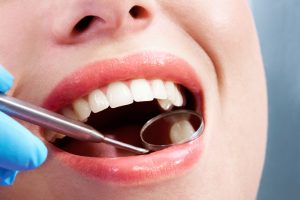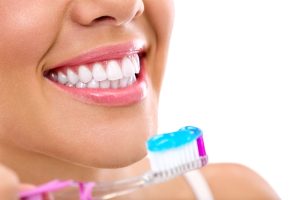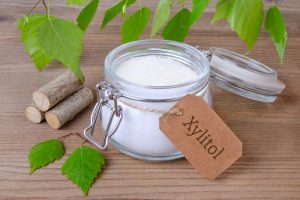The Role of Saliva in Oral Health: More Than Just Moisture
When it comes to oral health, most people focus on teeth and gums. However, at Solid Bite, our Melbourne, FL, dentists, Dr. Lee Sheldon, Dr. Matt Sheldon, and Dr. Michel Furtado, emphasize the crucial role of an often-overlooked component: saliva. This remarkable fluid does far more than just keep your mouth moist. Explore the fascinating world of saliva and its importance to your oral and overall health. Call our Brevard County dental practiceat (321) 259-8000or keep reading to learn more.
What is Saliva?
Saliva is a clear, slightly acidic fluid produced by the salivary glands in and around your mouth. Composed of 99% water, the remaining 1% contains vital substances including electrolytes, mucus, antibacterial compounds, and enzymes. The average healthy adult produces between 0.5 to 1.5 liters of saliva daily, controlled by the autonomic nervous system.
The Primary Functions of Saliva
- Moistening and Lubricating the Mouth: Saliva coats the inside of your mouth, facilitating speech, chewing, and swallowing.
- Aiding in Digestion: Enzymes in saliva, such as amylase, begin breaking down food even before you swallow.
- Facilitating Speech: By keeping your mouth moist, saliva allows for smooth movement of your tongue and lips, enhancing speech clarity.
Saliva’s Role in Protecting Oral Health
At Solid Bite, we emphasize that saliva is one of your mouth’s best defenses against decay and disease:
- Neutralizing Acids and Maintaining pH Balance: Saliva helps neutralize acids produced by bacteria after eating, maintaining a balanced pH in your mouth and protecting teeth from decay.
- Remineralizing Tooth Enamel: Rich in calcium and phosphate ions, saliva helps remineralize early stages of tooth decay, potentially reversing minor damage to tooth enamel.
- Antimicrobial Properties: Saliva contains antimicrobial components like lysozyme, lactoferrin, and peroxidase, which fight harmful bacteria, fungi, and viruses in your mouth.
- Flushing Away Food Particles and Bacteria: The constant flow of saliva helps wash away food particles and bacteria, particularly in hard-to-reach areas.
Saliva’s Impact on Taste
Saliva plays a crucial role in our ability to taste:
- Dissolving Food Particles: Saliva dissolves food particles, allowing them to interact with taste buds on your tongue.
- Taste Bud Function: It helps maintain the health of your taste buds and carries dissolved food particles to them, enhancing flavor perception.
Saliva as a Diagnostic Tool
An exciting area of research is saliva’s potential as a diagnostic tool:
- Biomarkers in Saliva: Saliva contains many molecules found in blood, including proteins, hormones, antibodies, and nucleic acids, which can serve as biomarkers for various health conditions.
- Diseases That Can Be Detected Through Saliva Testing: Research suggests that saliva testing could potentially detect or monitor conditions such as certain cancers, diabetes, cardiovascular disease, and some infectious diseases.
- Future Potential of Saliva-Based Diagnostics: As research progresses, saliva testing could become a non-invasive alternative to blood tests for various health screenings.
Common Saliva-Related Issues
At Solid Bite, we often encounter these saliva-related issues:
- Dry Mouth (Xerostomia): Caused by certain medications, medical treatments, or conditions like Sjögren’s syndrome, dry mouth can increase the risk of tooth decay, gum disease, and oral infections.
- Excessive Saliva Production (Hypersalivation): While less common, overproduction of saliva can be embarrassing and uncomfortable and may indicate underlying health issues.
- Impact of Medications on Saliva Production: Many medications, particularly those for depression, anxiety, pain, allergies, and high blood pressure, can affect saliva production.
Maintaining Healthy Saliva Production
Our team at Solid Bite recommends these tips for maintaining healthy saliva production:
- Stay Hydrated: Drink plenty of water throughout the day to ensure adequate fluid for saliva production.
- Chew Sugar-Free Gum: Chewing gum stimulates saliva production. Choose sugar-free varieties to avoid increasing your risk of tooth decay.
- Avoid Tobacco and Excessive Alcohol Consumption: Both can dry out your mouth and reduce saliva production.
- Manage Stress: Stress can affect saliva production. Practice stress-reduction techniques like meditation or yoga.
Treating Dry Mouth
Depending on the cause and severity of your condition, we may recommend one or more of the following:
- Saliva Substitutes: Over-the-counter artificial saliva products can provide temporary relief and help moisten the mouth.
- Prescription Medications: Drugs like pilocarpine or cevimeline can stimulate saliva production in certain cases.
- Fluoride Treatments: To protect against tooth decay, we may recommend fluoride gels or varnishes.
- Oral Rinses: Specialized mouth rinses can help moisturize the mouth and reduce symptoms.
- Diet Modifications: Eating foods that require more chewing can naturally stimulate saliva flow.
- Addressing Underlying Conditions: If dry mouth is a symptom of another health issue, treating that condition may alleviate dry mouth symptoms.
- Adjusting Medications: If your dry mouth is a side effect of medication, we may work with your doctor to adjust your prescription.
Nurture Your Oral Ecosystem: Schedule Your Saliva Health Check Today!
Remember, your mouth is a complex ecosystem, and saliva is a vital part of that system. By appreciating and caring for all aspects of your oral health, including saliva production, you’re taking an important step towards a healthier, happier smile.
Do you have questions about saliva and its role in oral health? Have you experienced any saliva-related issues? We’d love to hear from you. Feel free to contact Solid Bitein Melbourne, FL, by dialing (321) 259-8000to schedule an appointment. We also offer services for patients in surrounding areas like Palm Bay, Cape Canaveral, Cocoa Beach, Scottsmoor, Sharpes, Titusville, Viera, Malabar, Indian Harbour Beach, and Melbourne Beach. At Solid Bite, we’re always here to support your journey to optimal oral health.









